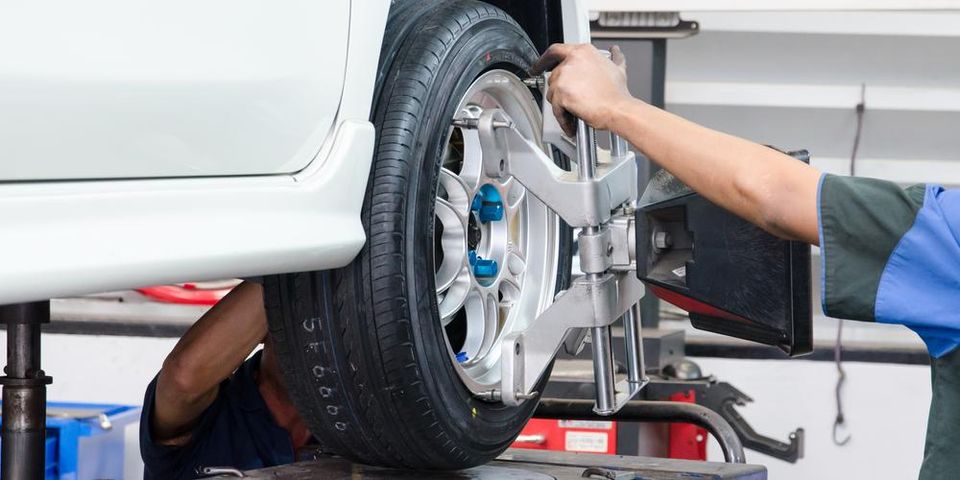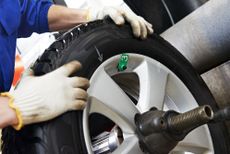
Unless you have a flat, you probably don’t think too much about your tires. However, the state of your wheels can significantly affect your vehicle and safety. Along with regular oil changes and alignments, wheel balancing is a crucial part of proper vehicle maintenance. Here, the experts at Wally Carlson & Sons BP of Lindstrom, MN, explain what wheel balancing is and why it’s important.
A Brief Guide to Wheel Balancing
What Is Wheel Balancing?
Wheels and tires never weigh the same all around—the side of the wheel with the valve stem hole is usually lighter than the other. Tires also have slight weight imbalances, as no tire is perfectly round. When your vehicle is traveling at high speeds, these minimal imbalances become significant through centrifugal force, causing the wheel and tire to spin unevenly.
Wheel balancing, also called tire balancing, involves equalizing the combined wheel and tire weight, so the tire rotates smoothly around the axle. To do this, a mechanic uses a wheel balancing machine, which centers the wheel and turns it to determine the appropriate weight distribution.
What Are the Benefits?
 Wheels rotate at high speeds. A 15-inch wheel, for instance, turns more than 2,000 times per mile. When a wheel is imbalanced, one area will sustain more stress than the other. Because the wheel and tire rotate so many times throughout the course of a day, this can quickly result in significant damage.
Wheels rotate at high speeds. A 15-inch wheel, for instance, turns more than 2,000 times per mile. When a wheel is imbalanced, one area will sustain more stress than the other. Because the wheel and tire rotate so many times throughout the course of a day, this can quickly result in significant damage.
The rubber on an unbalanced tire will become weak and more prone to going flat. Also, if the weight is significantly imbalanced, the car will vibrate, resulting in wheel and tire damage and premature wear. It also impacts suspension and steering. At high speeds, unbalanced wheels may cause the car to vibrate so much that it becomes difficult to steer and control your vehicle. Furthermore, unbalanced wheels decrease fuel economy.
When Should You Get Your Wheels Balanced?
Wheel balancing should be part of your regular vehicle maintenance regimen. Most manuals include recommendations on how often you should have your wheels aligned and balanced. However, a good rule of thumb is every 6,000 to 9,000 miles, or in conjunction with your regular oil changes.
For professional, dependable car maintenance in the Chisago County area, look no further than Wally Carlson & Sons BP. These experienced auto technicians have served the community for over 30 years, providing everything from gasoline, diesel fuel, to auto repair. Call (651) 257-2476 to speak with a staff member or visit their website for a complete list of services.
About the Business
Have a question? Ask the experts!
Send your question

